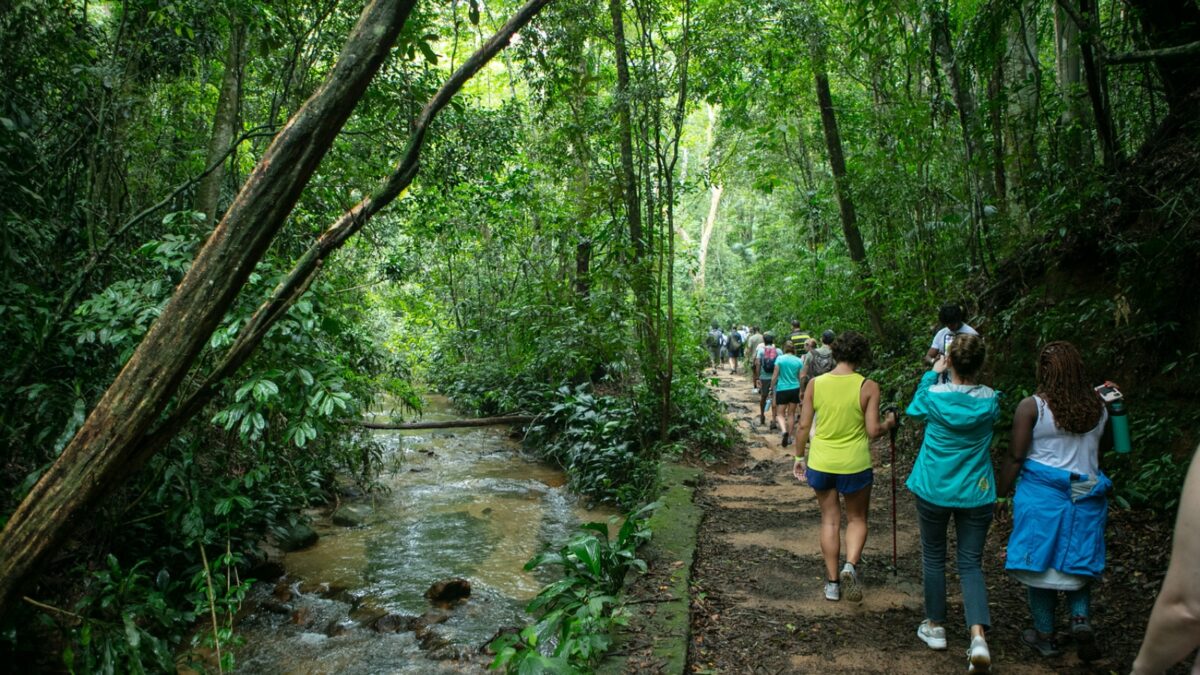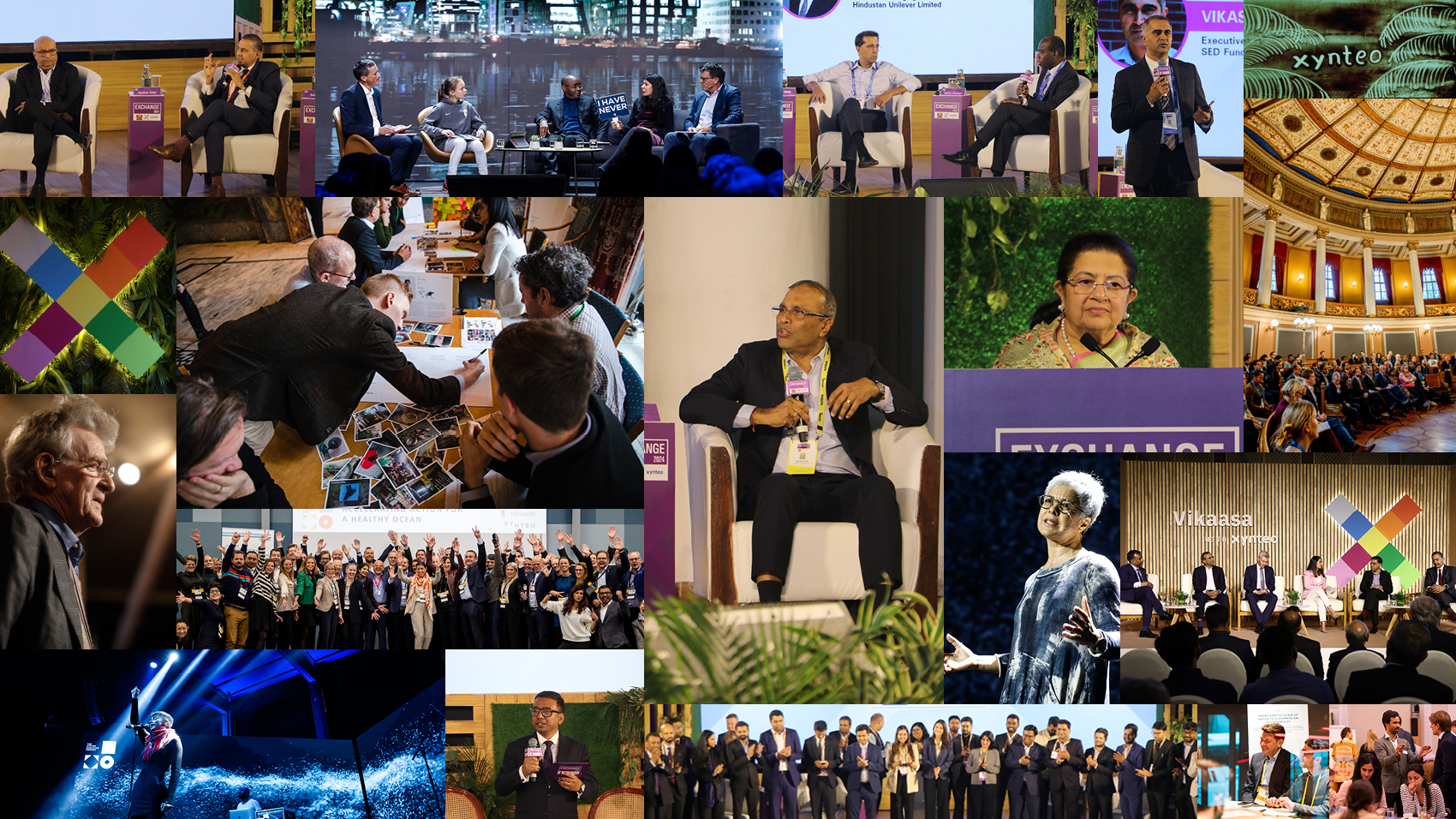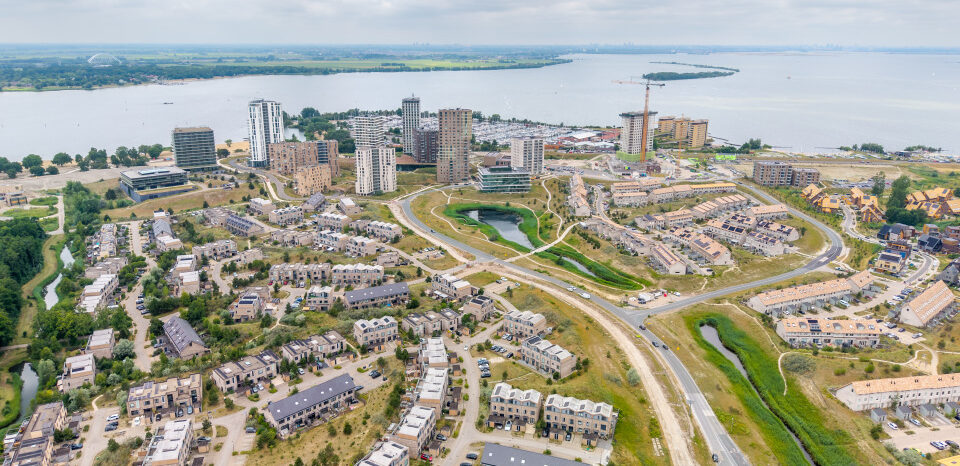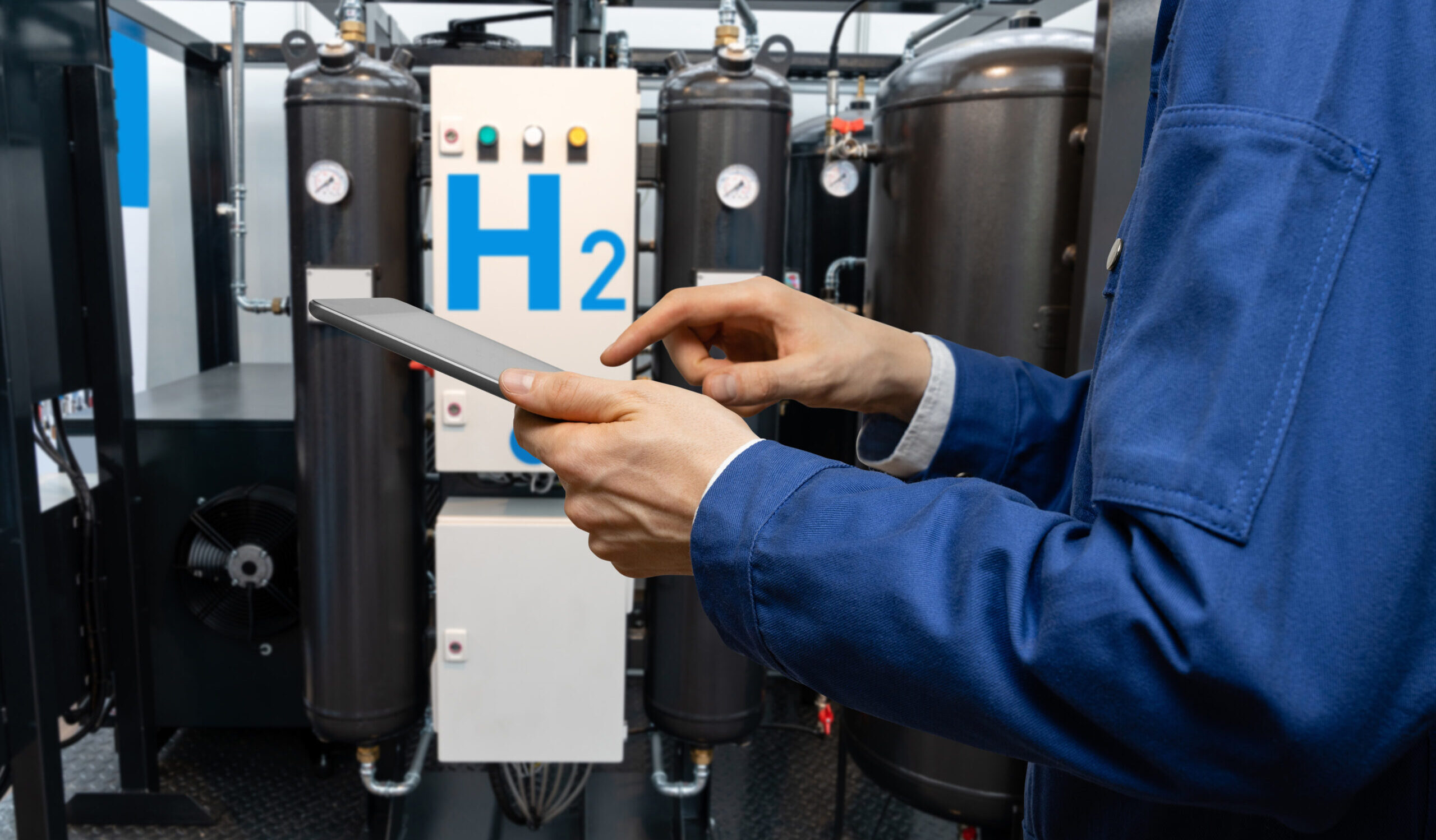Across the last nine months the Leadership Vanguard cohort of change makers – sourced from our partner organisations Baker Hughes, DB Schenker, EDP, ICRC, and Shell – have travelled the world to investigate the big challenges we face as a global society and the threat to the planetary ecosystem in which we live.
As part of the journey, our catalysts have been inspired by the story of the idea of the ‘Commons’ in London (UK) and investigated the development of regenerative resilience in Cebu (The Philippines).
For a reminder, the 2022 Vanguard cohort impact ideas.
- Distributed clean energy: how can we provide clean, green energy to those without?
- Regenerative farming and food: how can we feed the world’s population with less land and good food, while restoring and regenerating soil and native ecosystems?
- E-waste: how can we tackle the growing mountain of e-waste the rich world dumps in Africa and Asia?
- Re-greening cities: how can we re-green the world’s most nature-poor cities with native species of flora and fauna?
Now, in Rio de Janeiro (Brazil), our team take their four programme areas into a space that clearly demonstrates how seeds of impact can be scaled.
Turning seeds of impact into scalable solutions
Fired by the experience of Cebu, the final leg of our regenerative odyssey posed the question; how we can go from these small seeds to initiatives that do truly scale ‘up, wide and deep’?
Rio de Janeiro provided a showcase for such initiatives, both historically through the breath-taking examples of Tijuca national park or the Rio Carnival itself, and in the present through initiatives like the landless movement MST (Movimento dos Trabalhadores Rurais Sem Terra) and syntropic farming.
Rio, as a microcosm of Brazil, is riven with social, political, racial, economic, and environmental fault lines; however its complicated history makes Brazil a fertile soil for surprising and impactful solutions. Friction and instability are food for innovation and creativity, and diverse spaces are the perfect ground for new ideas to flourish. Rio is a breathtakingly energetic and positive city, full of inspiring examples of attempts to regenerate nature, communities, and commerce with a distinctively ‘Carioca’ sense of generosity, joy, and expression.
To immerse our participants in the carioca energy and to take advantage of the amazing natural assets of the city, we kicked off the program with a grounding exercise at Leme Beach. A guided meditation framed with principles of deep ecology and Dragon Dreaming reminded us of the connection between ourselves, the Earth and each other.
As agents of the present, bridging the past and the future, we have the power to act now, based on ancestral knowledge, hoping to leave a better world for future generations. This constructive exercise helped our change makers to stay present and enjoy every bit of that special week.
We then visited the community Morro da Babilônia, to meet local social entrepreneurs. At , we tried the vegan and zero-waste food prepared by its founder Regina Coelli and learned about the project’s workstreams, such as access and awareness to nutritious food, and education for food sovereignty in the communities.
The project is impactful and impressive, but mostly, the group was wowed by Regina’s fire and passion for the regenerative food cause. Her energy and willingness to start the initiative by herself, with an investment of 140 Brazilian reais (about 25 Euros) twelve years ago are an endless source of inspiration.
At Revolusolar, the group could see what the first solar power plant in a favela looks like but also understand the implementation and operational challenges that the cooperative model faces to generate reliable and affordable power. The passion of Revolusolar collaborators and Babilônia inhabitants shone through our conversation, making it clear that their persistence and drive are truly the fundamental enablers of their work in expanding to other communities. Reciclotron helped our group to see the light at the end of the e-waste tunnel.
And at each interaction with social entrepreneurs, our catalysts were fuelled with excitement to drive change systems. Even if the starting point might seem small, their dreams and hope for the future are always big.
In the city centre, the historian and musician Matheus Rodrigues guided us through a unique and powerful historical tour through the Pequena África circuit to learn more about the history of slavery from the black communities’ perspective. We understood how the entire economy of the Portuguese crown relied on enslaved peoples for centuries – which also shaped what Brazil and Rio came to be. We visited sites such as Cais do Valongo, Instituto dos Pretos Novos, Morro da Favela, and Pedra do Sal. Visiting a clandestine cemetery and the wharf that received the largest number of slaved people in history isn’t easy, but it is undoubtedly impactful and requires some time to reflect and digest.
This visit launched our cohort into a range of deeper questions; what do those things have to do with each and one of us? How can I go about my life/become a better leader knowing what I know, and understanding my privilege in this world? These and other important reflections were discussed at coffee time, held in an African-Brazilian religious centre.
The Pequena África circuit, however, has an unexpected ending. Pedra do Sal, a place considered to be the birthplace of Samba and an area that holds a difficult history of its own. Yet it also served as grounds for one of the most beautiful Brazilian creations, some of the country’s most powerful rhythms, dances and cultural expressions.
What started as a resistance movement, harvesting and expending happiness as a survival strategy, became what today is one of the most important industries in the city – and the most well-known cultural badge of Brazil as a whole: the Carnival. And at Cidade do Samba, we learnt everything about the scale and magnificence of the Carnival industry.
Stepping out of the concrete jungle to the actual jungle, Rio holds the world’s biggest urban forests. Tijuca national park is a result of an ambitious reforestation initiative started in the 19th century and managed to this day. This live and humongous example of a regenerative initiative was the perfect classroom for our catalysts to learn about the success drives that enabled such change to take place and gain scale.
From the forest, we came right back into business talk. In a room full of people that are pushing business to the future, our catalysts got to exchange ideas and learnings from Brazilian players and their regenerative projects and initiatives. The pioneers of the future, as we called this panel, was one of the highlights of this trip. Hearing from local perspectives on solutions to the problems they learned about was a breath of fresh air and ignited energy and hope for the group presentations on the next day.
At dinner, we heard from two successful regenerative initiatives that are creating real impact in Brazilian food production, working around challenges such as soil depletion and food sovereignty. Luisa Cunha from Agenda Gotsch explained how syntropic farming techniques present solutions to many of the current challenges of today’s food production. Luana Carvalho, from MST (landless movement), presented how the grassroots movement, the biggest and most important supplier of organic products in Brazil, is succeeding in compensating for the lack of public policy in land distribution in the country while adopting traditional farming techniques and still maintaining the quality and scale of production.
Our full-women panel was hosted and joined by Roberta Sudbrack at her home-like restaurant. Roberta was a pioneer in incorporating local and seasonal produce into her menus, partnering with local organic farmers. She shared her unexpected leadership story with us, before serving us food that embraced our hearts and souls, one spoonful at a time.
Our Rio adventure finished with our catalysts presenting project ideas designed throughout the programme to create impact in a nod of the systems they’ve been working with – food, e-waste, urban landscapes and energy distribution. To enrich their ideas, we brought different perspectives to the room with a fully diverse panel of specialists, who provided comments and feedback on each idea presented.
These specialists come from business, social enterprises, NGOs, arts, social and environmental activism. The diversity of backgrounds in the panel added an unexpected level of complexity to our discussions, and therefore to this year’s cohort ideas.
This sensorial city was the perfect stage for the last in-person encounter of the Vanguard 2022 cohort. Because to experience Rio is to feel in our bodies the influence that the surroundings have on us. It is the materialization of what the regenerative approach calls the power of place – a concept that is widely known in Brazil as território. Multisensorial experiences have eye and heart-opening power – being “swallowed” by the rainforest, meeting someone face-to-face and grasping their struggles first-hand, sharing a smile and cheering at life together.
These real-life moments have the potential to unleash paradigms and break mental walls. Experiences such as the ones we design for the Vanguard, can create awareness that numbers and data alone will never be able to create. If the leaders of today understand the urgent need for new ways of thinking, there might still be hope for life in this planet.
A programme of renewal and our purpose-driven future
As we come to the end of the 2022 programme, the Leadership Vanguard team has been thrilled to take our catalysts along a journey of discovery. The power of the immersion component within the wider programme is that it opens eyes, brings in new and unique perspectives, takes leaders out of the office and into the field – and brings home the power for collaborative systems change.
Based on experiential learning with extraordinary experiences, encounters and dialogues as stimulus, the field trips delivered these profound moments, from meeting communities facing the front-line impacts of climate change, to understanding the slave trade and its residual effect on present-day social inequality.
The three live events across London, Cebu and Rio have been supported through the year by our online-learning modules and virtual group sessions; allowing the cohort to focus time on delivering the dual impact objectives: profound personal leadership development and effective strategies to catalyse systems change.
Xynteo and the whole Leadership Vanguard team thank our 2022 cohort for allowing us to take them on this journey.
–
Stay up to date with our latest interviews by following us on social media (LinkedIn I Twitter), or Contact Us to find out how we can help your leaders and organisation create people and planet-positive impact.



